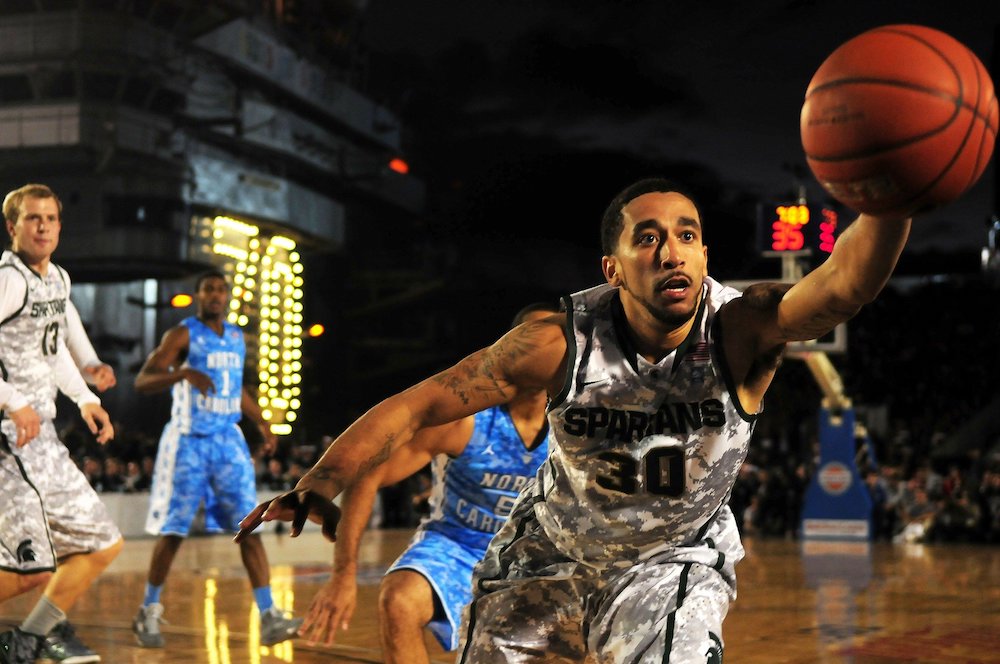Testosterone boosts persistence in the face of defeat

- A recent study explored the relationship between testosterone levels and men’s willingness to persist in tough competitions.
- The results provide the first causal evidence that the hormone promotes competitive persistence.
- Two potential explanations for this effect include a desire for social status enhancement and a desire for competition itself.
Imagine you are playing poker against a friend. The cards start turning up in your favor at first. But after an hour or so, your chips start dwindling, and it becomes clear you are on a losing streak.
What factors might influence you to persist or quit? One possible answer is your sense of control. Studies suggest that people are more likely to quit tasks and lose motivation when they feel they do not have much control over an activity.
Another potential factor is testosterone. The hormone, which exists in both sexes but more so in men, not only drives male secondary sex characteristics, but is also thought to make people more competitive. For example, rodents injected with testosterone tend to be more persistent in searching for food and investigating social situations, while studies show that men with higher levels of testosterone are more likely to enter competitions.
Could a testosterone boost make you more likely to keep playing the poker game against a tough opponent?
A recent study, published in the journal Psychoneuroendocrinology, explored the relationship between testosterone levels and sense of control in competitive situations. The results provide the first causal evidence that testosterone promotes competitive persistence.
“Illusory control”
For the study, the researchers recruited 88 participants, all of whom were male and between 18 and 40 years old. “Only male participants were included because testosterone metabolism is subject to sex differences and because the pharmacokinetics of topical administration of testosterone are unknown in women,” the researchers wrote.
The study centered on a game in which the participants tried to illuminate a light bulb by pressing buttons in a specific order. Each participant was under the impression that he was competing against another participant who was in the same room or one nearby. But in reality, each participant was playing against a computer. The order in which participants pressed the buttons did not matter because the computer was rigging the game.
The participants were divided into four groups differentiated by testosterone and sense of control. Before the game began, the researchers administered 150 mg of testosterone to roughly half of the participants. The other half received a placebo. The researchers also aimed to induce different levels of “illusory control” among the participants by having them complete a pre-game task that was rigged by the computer. To instill a high sense of control in some of the participants, the computer let participants win most of the game rounds. To instill a low sense of control, the computer won most of the rounds.
As such, participants entered the game under one of four conditions:
- Testosterone and high illusory control
- Testosterone and low illusory control
- Placebo and high illusory control
- Placebo and low illusory control
Throughout both the pre-game task and the actual game, the participants rated their perceived level of control. For the game, participants were given four dollars and instructed that they had to pay two cents to play each round, could quit the game whenever they wanted, and would be allowed to keep any remaining funds.
Testosterone and competition
In terms of competitive persistence, testosterone didn’t seem to make much of a difference for people who felt a high sense of control; both the placebo and testosterone groups behaved similarly. But there were differences between the two groups induced to feel a low sense of control.
The low-control placebo group tended to quit the game earlier than the others. However, the participants who were administered testosterone and were “set up” to have a low sense of control tended to persist playing the game, even as their opponent became increasingly successful at beating them.
“That is to say, testosterone administration disrupted the relationship between perceived personal control and persistence,” the researchers wrote.
One interpretation of that finding could be that testosterone rendered the men unable to discern the extent to which their opponent’s skills were superior.
“However, ratings collected during the competition suggested that participants who had received testosterone appeared even more aware of the opponent’s advantage than those who had received a placebo,” the researchers wrote. “Thus, after testosterone administration, participants maintained, and even slightly gained, sensitivity to the superior performance of the opponent, yet still engaged in monetarily disadvantageous competitive behavior.”
A 2019 study found that men who were administered testosterone tend to cede less resources to high-threat individuals. That study noted that testosterone “influences competitive decision-making by recalibrating the integration of threat into the decision-making process.”
The researchers behind the current study noted:
“Together, these findings suggest that rather than modulating explicit assessment of social threat/competitiveness, testosterone appears to act by modifying behavioral responses to such information.”
So, if people who are administered testosterone are not delusional about their performance or that of their competitors, why would they keep playing a losing game? Two potential answers are the pursuit of social status and playing for competition’s sake. The authors write:
“…we posit that a likely mechanism driving the observed persistence-enhancing effect of testosterone in those with low (induced) perceived control is that these participants appraised persistence in the competition as a means for social-status enhancement and were consequently motivated to persist regardless of the outcome and monetary value.”
They continued:
“Convergent with this proposition, previous research has shown that testosterone can affect the appraisal of competitive environments and that higher testosterone levels prior, during, and after a competition are associated with increased satisfaction with personal performance even in the case of a loss.”





